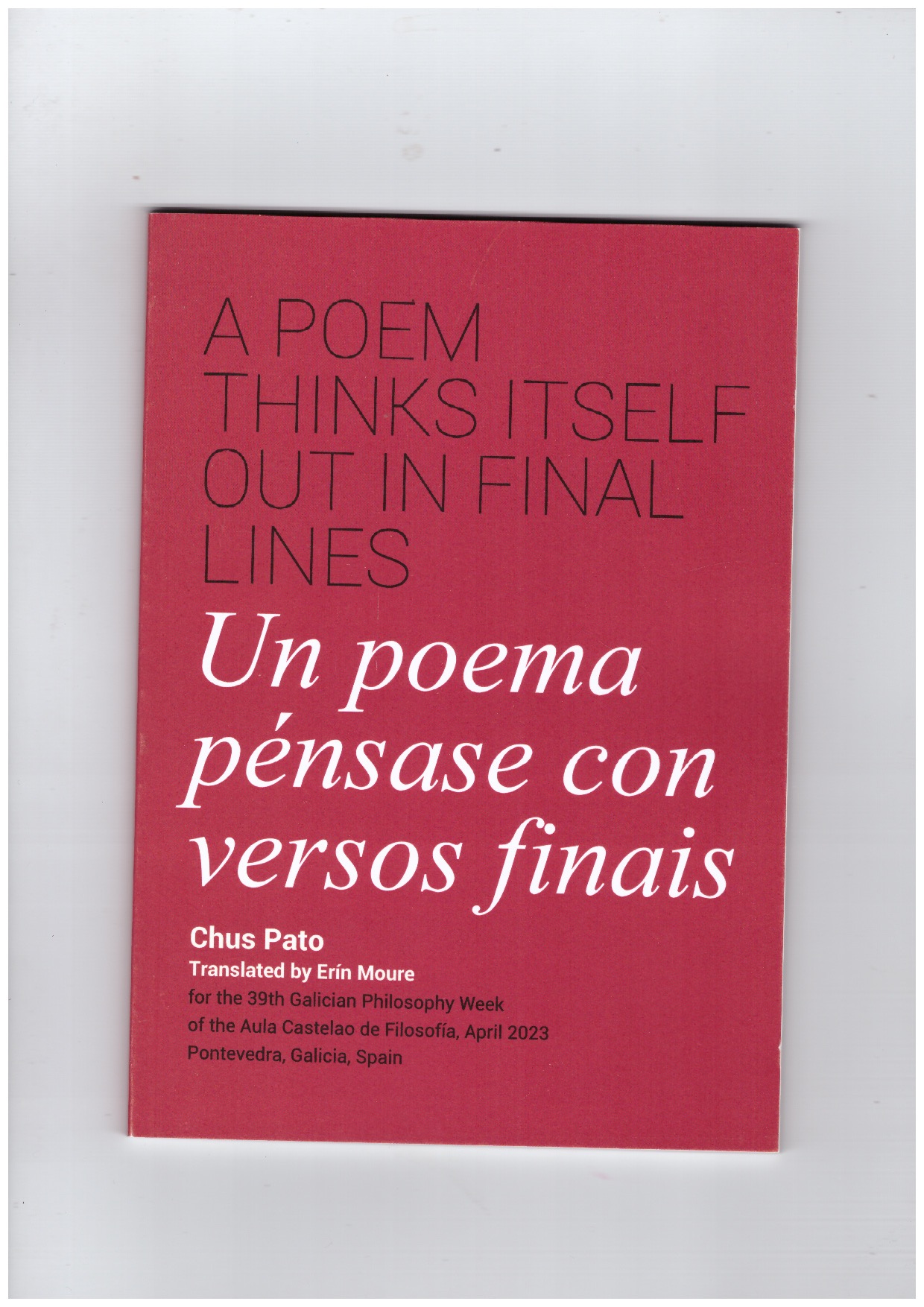PATO, Chus
A Poem Thinks Itself Out In Final Lines
A Poem Thinks Itself Out In Final Lines // Un poema pénsase con versos finais
It’s easy to agree that a philosophical text and a poem are both linguistic facts, but what if we ask, do both writings think? Not all would answer affirmatively. In her essay, Chus Pato asserts that thinking is common to both, and she delves into the similarities and differences, to open up what a poem is and does. In so doing, Pato traces a route through the words writing, image, voice, language and maternal in order to illuminate the poem’s work, ending with two poems from her latest, Sonora.
Moure’s English translation of Pato’s essay is complicated by another linguistic act: in English, the Galician words “fala,” “linguaxe,” “lingua,” and “idioma” are most often translated with just one English word, “language,” though they also have echoes in certain circumstances, yes, of speech, tongue, idiom. How does this restricted English range affect our ability to think about the poem? Moure each time allows us to see the word in Galician that Pato wrote, and the effect is contrapuntal, a-rhythmic, at times hilarious, and—she hopes—clarifying.
Pato’s essay is followed by an addendum from the translator with the full translation of the Xosé Luís Méndez Ferrín poem cited by Pato, along with notes on the crucial relation of sonority to meaning. The meaning of some of the Galician words Ferrín uses is not as important as that they sound Galician. It is important that the words are Galician. To create a translation that does not alter the poem’s expressed intention, the sound of these words must be respected—meaning-sounds that fall on the ear of the colonizer (who includes the reader in English) as full-on defiance. [publisher's note]
Translated by Erín Moure
Published by Pamenar Press, 2023
Poetry
